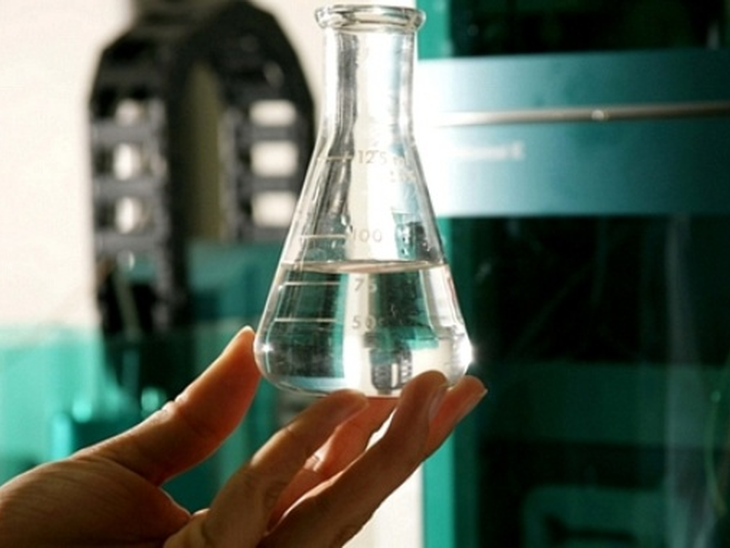
 Ethanol
Ethanol
T&B Petroleum/Press Office

A multinational team of researchers from Brazil, the United Kingdom and the United States have identified a gene involved in the hardness of plant cell walls. This is a considerable advance for the production of second generation ethanol, made from vegetable biomass. Suppression of this gene increased the release of sugars by up to 60%. The findings of the group were presented yesterday (8) in the journal New Phytologist. Another practical application of these results will be the development of more digestible grasses with higher nutritional value for ruminant animals.
Plant biomass has considerable calorific value, but most of this energy is contained in the robust cell walls, an evolutionary advantage that has helped forage grasses to survive and thrive for more than 60 million years. The problem is that this robustness hinders digestion in the rumen of cattle and sheep and is an obstacle to the production of ethanol in biorefineries.
Global impact
"The impact of the research is potentially global as all countries use pastures to feed their animals and several bio-refineries around the world use this raw material," says Rowan Mitchell, a plant biologist at Rothamsted Research in the UK and co-leader team's.
Hugo Molinari, a researcher at the Laboratory of Genetics and Biotechnology of Embrapa Agroenergia (DF), who also coordinates the work, informs that the sector involves billions of dollars. "In Brazil alone, the potential markets for this technology were evaluated last year at R$ 1.3 billion (US $ 400 million) for the biofuel segment and R$ 61 million for cattle feed. important to say that it is a very important discovery for the scientific community, "says Embrapa scientist.
Billions of tons of pasture biomass are produced each year, Mitchell notes, and a key feature of these forages is their digestibility, which determines how economical it is to produce biofuels and how nutritious it will be for animals. Increased stiffness of the cell wall, or so-called feruloilation, reduces its digestibility.
"Ten years ago, we identified specific genes of gramineous candidates to control cell wall feruloilation, but it has proven to be very difficult to demonstrate this role, although many laboratories have tried. We produced the first strong evidence for one of these genes identified," the scientist.
The plant transformation team used a transgene to suppress the endogenous gene responsible for feruloylation to about 20% of its normal activity. Thus, the biomass produced has become less feruloilated (presents lower stiffness in the cell walls) compared to an unmodified plant.
"The suppression showed no obvious effect on biomass production or on the appearance of transgenic plants with lower feruloilation," Mitchell notes. "Scientifically, we now want to find out how this gene works in the feruloilation process, so we can make the process even more efficient," says the researcher.
Advance for Brazilian ethanol
The discoveries will benefit Brazil, owner of an expanding bioenergy industry that uses grass waste, such as corn and sugarcane, as biomass used to produce bioethanol. The discovery of the gene will allow the development of plants with walls that are easier to break. The consequence will be to increase efficiency in the production of bioethanol, which, in Embrapa's evaluation of Molinari, will help in the replacement of fossil fuels and in the reduction of greenhouse gas emissions.
"In an economic and environmental way, the agricultural sector will benefit from more efficient forage and our biofuels industry will benefit from the biomass that needs fewer enzymes to break it during the hydrolysis process," says the Brazilian scientist.
For Professor of Biochemistry at the University of Wisconsin-Madison and researcher at the US Department of Energy's Great Lakes Bioenergy Research Center, John Ralph, the discovery was long overdue and was hard hit. "Several research groups have been very close to the protein / gene responsible for feruloilation and (work in that area) started about 20 years ago," said the research co-author and one of the pioneers of research in this area.
"Our group has been working since the early 1990s on crosslinking ferulates in the cell wall of plants and has developed nuclear magnetic resonance (NMR) methods useful in characterizing this study," notes Ralph. "The discovery of this process was very difficult."
Contact us